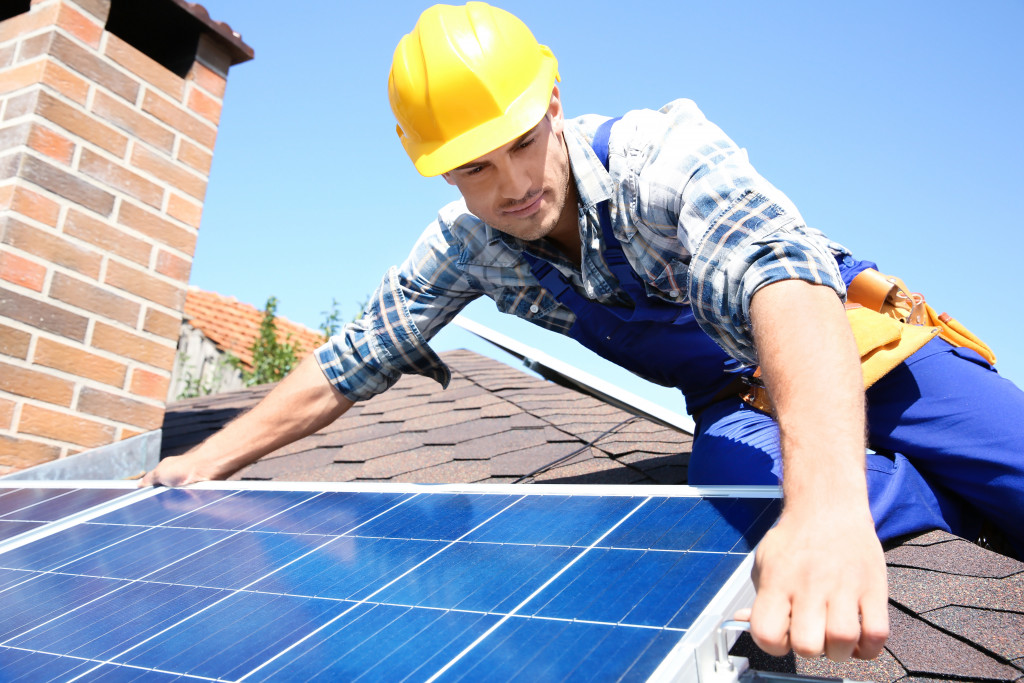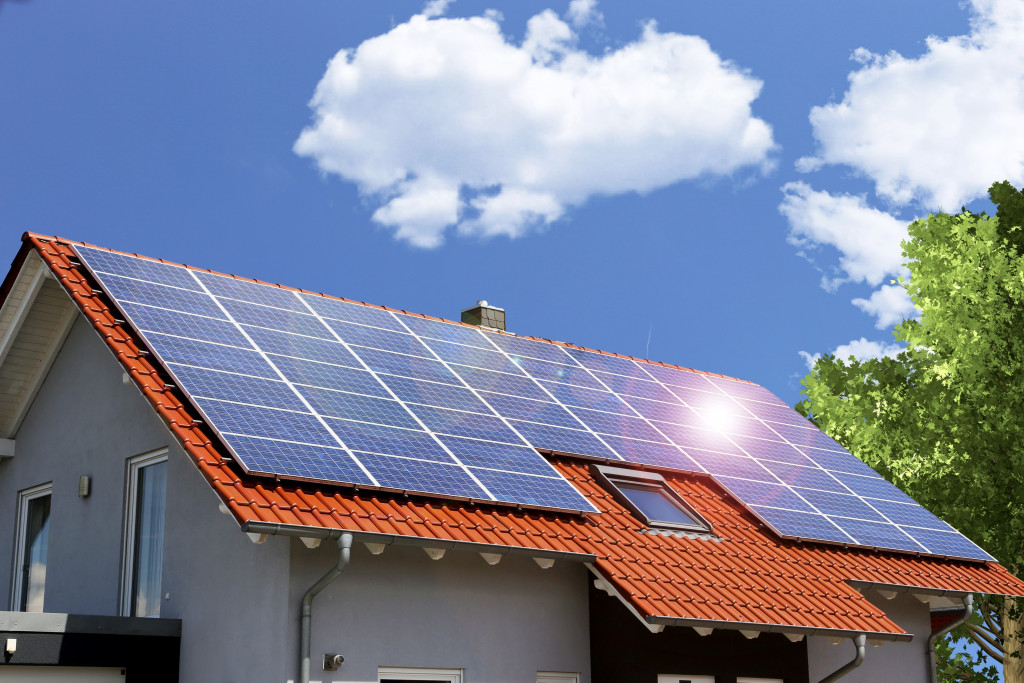If you’re considering installing solar panels, you’re definitely not alone. In recent years, solar power has become one of the most popular forms of renewable energy in the world.
But there’s a lot to learn before you take the plunge and invest in this technology. This blog post discusses everything you need to know about solar panels: what they are, how they work, what their benefits are, and how to install and manage them.
What Are Solar Panels?
Solar panels are devices that convert sunlight into electricity. They usually consist of a panel of solar cells made up of silicon crystals. When light shines on the cells, it creates an electric field across the layers of silicon. This field causes electrons to flow freely through the silicon, creating an electric current. This current is then channeled into an inverter and ultimately converted to AC power the home or business can use.
The solar industry has grown tremendously in recent years. Wood Mackenzie and Solar Industries Association reported that it added nearly 20 gigawatts of capacity in 2020 despite the pandemic. It’s over 40 percent increase compared to the previous year.
Experts are also confident that more households will install solar panels. By 2030, it could increase by fourfold.
Where does its popularity come from? Here are the possible reasons:
- Electricity Savings: Installing solar panels can help reduce your electricity bill by 50 to 100 percent (completely off-grid). In some states, you can even sell excess energy back to the grid.
- More Affordable Installation: The cost of installing solar panels has dropped significantly over the past decade. When it started, it would cost homes over $50,000. Today, a typical household would spend $15,000.
- Sustainability: Solar energy is a renewable resource that doesn’t produce any harmful emissions.
- Tax Incentives: States are offering more incentives to install solar panels, so there has never been a better time to go solar.
- Ease of Installation: Today’s solar panels are portable and easier to install compared to previous models, partly thanks to technologies like the solar panel inspection drone. This device can help identify any potential problems with your roof and help you make a more informed purchase.
How Do Solar Panels Work?
Now that you know a bit more about solar panels, let’s dive into how they work.
First, the solar cells absorb photons from sunlight. Then each photon will knock an electron loose from its orbit around a silicon atom inside the cell. The free electrons then become part of an electrical current that flows in one direction (DC). This is called direct current or DC power.
At this point, the solar panels need to convert the DC power to alternating current or AC. This is because most appliances in your home run on AC power, which changes direction multiple times per second.
To convert electricity from DC to AC, you’ll need an inverter installed next to your solar panels. The inverter converts the DC current into a clean and reliable form of energy (AC) that can power your home or business.
Tips on Installing and Managing Solar Panels

Despite the benefits of solar panels, they’re not for everyone. Determine if this is the best renewable energy option for you with these tips:
1. Determine the Type of Roof You Have
In general, you can install solar panels into almost all roofing types. However, the process can significantly vary and affect the cost of installation.
Experts believe that asphalt shingles are the best for solar panel installation since they are the most common. Installers can also simply create studs to keep the panels in place.
2. Check Your Roof’s Condition
Even if you have the best roof for solar panels, it doesn’t mean that your home is ready for them. Older roofs may not be able to support the additional weight of these devices.
To ensure that your installation won’t compromise the integrity of your roof, check with a certified installer or contractor first. They can advise you on how to proceed.
3. Know Your Home’s Electrical System
You need to know your home’s electrical system before you install solar panels.
For instance, if you have an older house with a 100-amp breaker panel, it can’t support the additional power from the solar panels. In this case, you may need to upgrade your breaker first before installing any panels.
Solar panels are becoming more and more popular as homeowners seek ways to reduce their electricity bills and become more sustainable. Despite this, they may not be for everyone.
Before you install any, check your roof’s condition and learn more about your home’s electrical system first to ensure the safety of your family and the efficiency of these devices.

